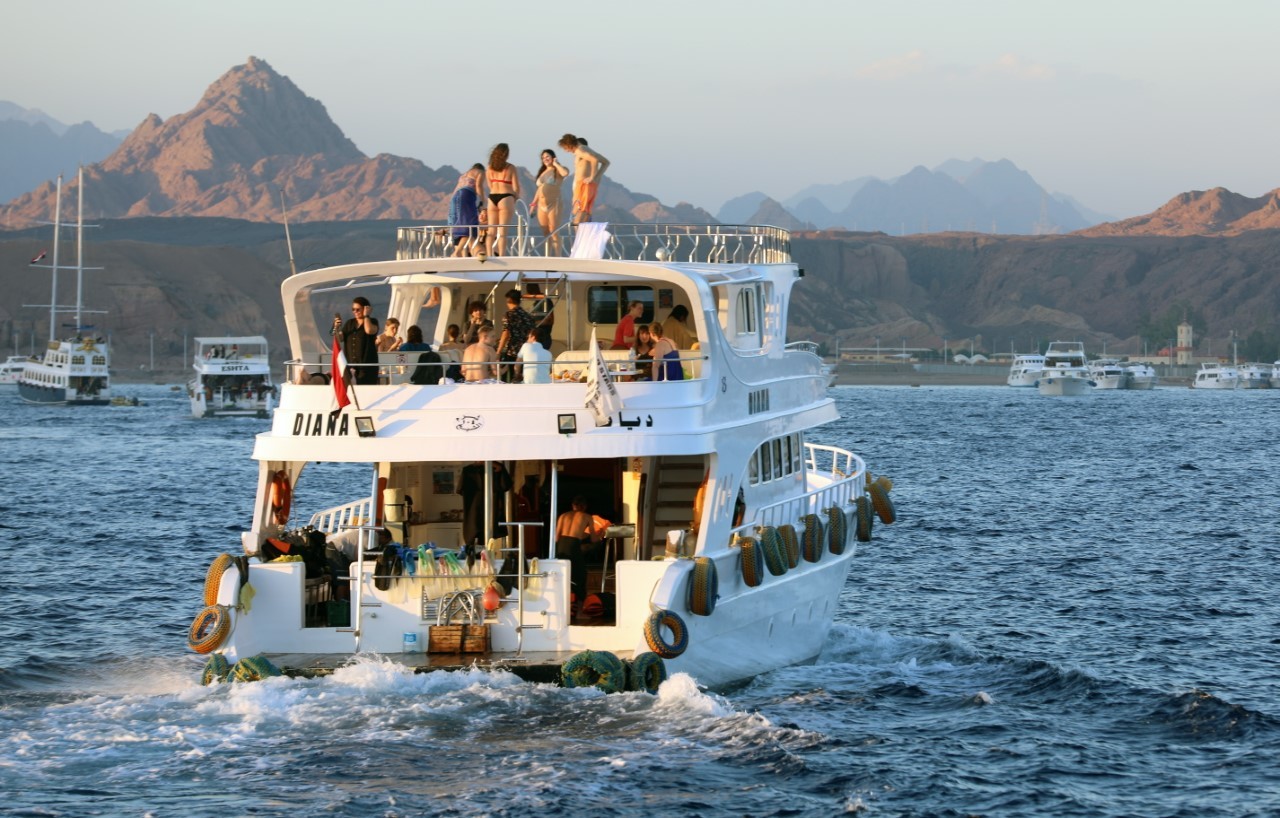Once upon a time there was a place where walking down the street automatically makes you a suspect.
Excuses are of little use: "I have the COP27 credential, my hotel is just over a kilometer away and I have decided to walk because the bus takes us for an hour going round and round through a labyrinth of very private resorts and dusty places" .
The last thing one expected when doing the "desert crossing" was to be detained by one of those men in black suits and sunglasses (
Caiga quien caiga
style ) for the simple fact of taking a shortcut to get to that ghost development , dotted with rubble and rubbish, where the dilapidated hotel stands.
And yet that was what happened on the first day, and also on the second.
At first it was even fun: looking at the horizon and scanning the men in black posted every hundred meters in the middle of nowhere and under a murderous sun.
One thought that they might be security guards paid by the real estate companies that have turned Sharm el Sheikh into
a succession of open-air ditches.
But no: they are suited members of the intelligence services (Mukhabarat), riding "imaginary" in the strangest place in the world.
After all, Egypt is a police state remotely controlled by Al Sisi and that oppressive feeling reaches to the very tip of the Sinai Peninsula.
Under this unreal and suffocating atmosphere, the UN Climate Summit (COP27) is taking place, where barely 2% of those accredited could boast of arriving at the Tonino Lamborghini Center with a daily record of "zero emissions" (the "2" goes by my colleague Manuel Planelles, from El País, who also discovered on his own the advantage of the intrepid journey on foot through the desert).
The more than 35,000 delegates arrived religiously in turns on the erratic buses, in private cars or in the diesel taxis that poison the air and insistently honk at passers-by, as if trying to seduce them into giving up the madness of walking from somewhere to another.
Everything is excessive in Sharm el Sheikh
, the tourist enclave that emerged in the 80s that was a more or less strategic port, since then converted into something like a bad replica of Las Vegas, with its false pyramid, its Roman amphitheater and its dinosaurs of paste.
Billboards anticipating a "zero emissions" future seem like a bad joke next to five-lane highways and golf courses at the most private resorts catered to the Russian and Italian tourists who simmer on the beaches at this time of year. .
From the COP27 press room, you can see what will eventually be the last tourist paradise of Shark's Bay, in the image and likeness of Puerto Banús.
At the bottom, in the bay, we get a glimpse of the Red Sea, like an impossible promise with its crystalline waters and its corals, the most resilient on the planet (although they would hardly survive a global increase in temperatures of more than 1.5 degrees). .
Tourists on one of the boats leaving for diving in the Red Sea
Those who came here a long time ago, attracted by the lure of diving, have been able to verify the impact that climate change is having on the waters of the Gulf of Aqaba.
In the middle of November, the thermometers have marked more than 30 degrees in Sharm el Sheikh, which in summer becomes an oven above 40 degrees and faces great problems due to the scarcity of water, like most of Egypt.
The prevailing model, however, continues to be the American-
style sprawl
, as if we could continue to grid the desert to the size of humans.
One wonders where the seven million dollars have gone to turn Sharm el Sheikh into a so-called 'green city' in time for COP27.
The summit started by the way with great logistical problems.
During the first three days it was almost impossible to find food in the stalls, water became scarce and there were those who subsisted on ice cream.
Things got better as the days went by, it's true, and so did the culinary offerings, including vegan rolls.
The initial price premium for the coffee was more than offset by the stalls offering the daily dose of caffeine for free.
Signage also improved, Wi-Fi issues were fixed, and even the subarctic air conditioner in the media room seemed to adjust to a more humane temperature, though sneezing was a daily occurrence.
Everything was gaining an aspect of relative normality, but the activists (and also the delegates) did not stop complaining about that atmosphere of "monitored freedom" that made the summit difficult from beginning to end.
After all, Sharm El Sheikh is and will always be a place more prone to mirages than miracles.
Although we will always have the call to prayer of the 'muezzin'
in the midst of the telluric silence of the desert
, at first dawn or late afternoon, as a counterpoint to the insidious buzz of mosquitoes that turn the night into a stinging nightmare.
According to the criteria of The Trust Project
Know more

